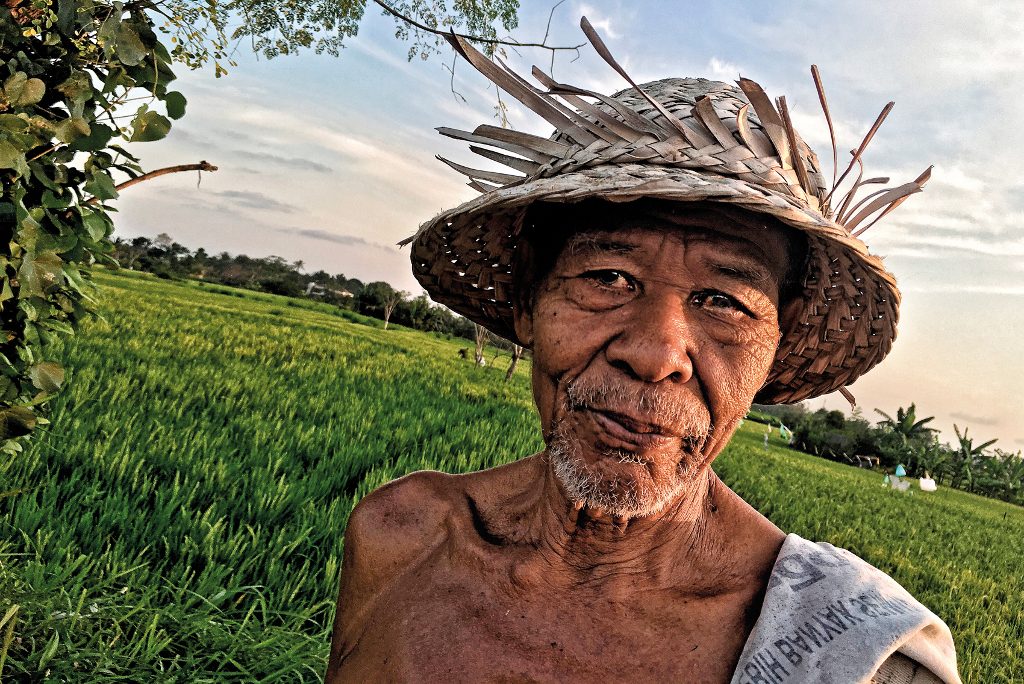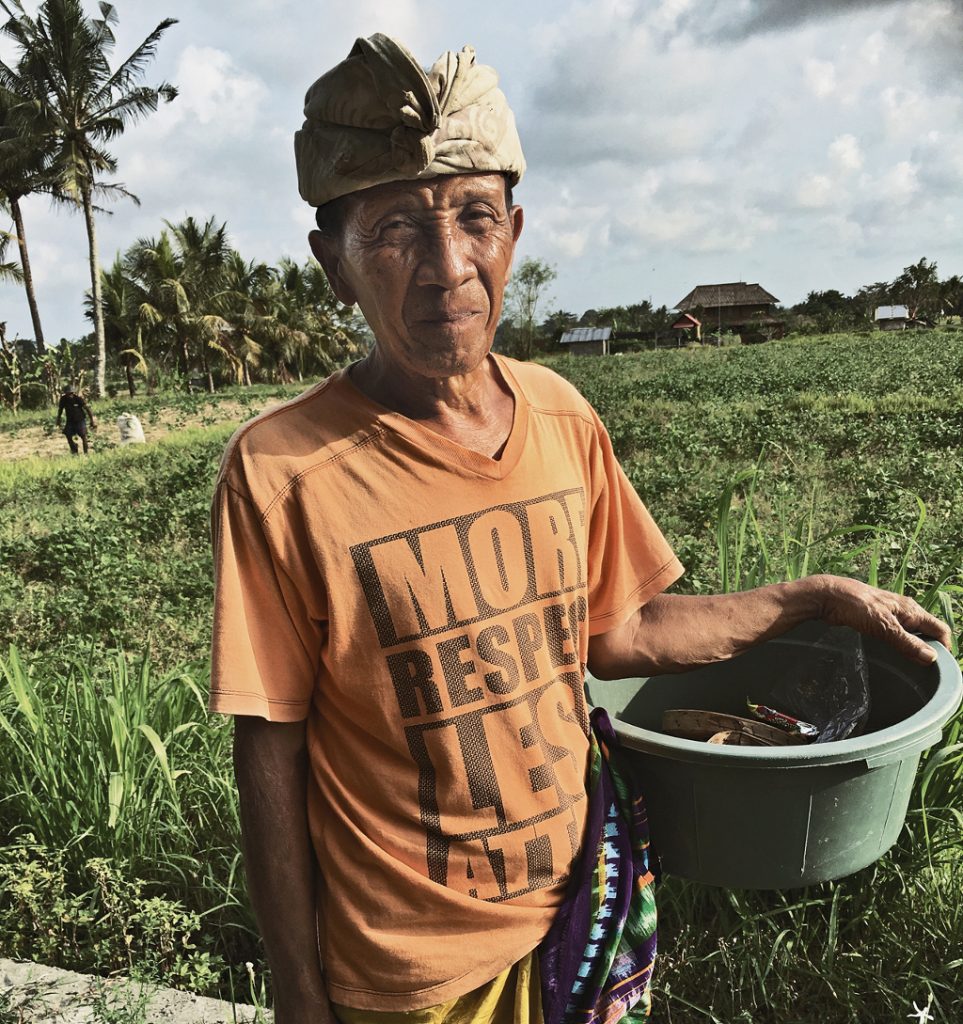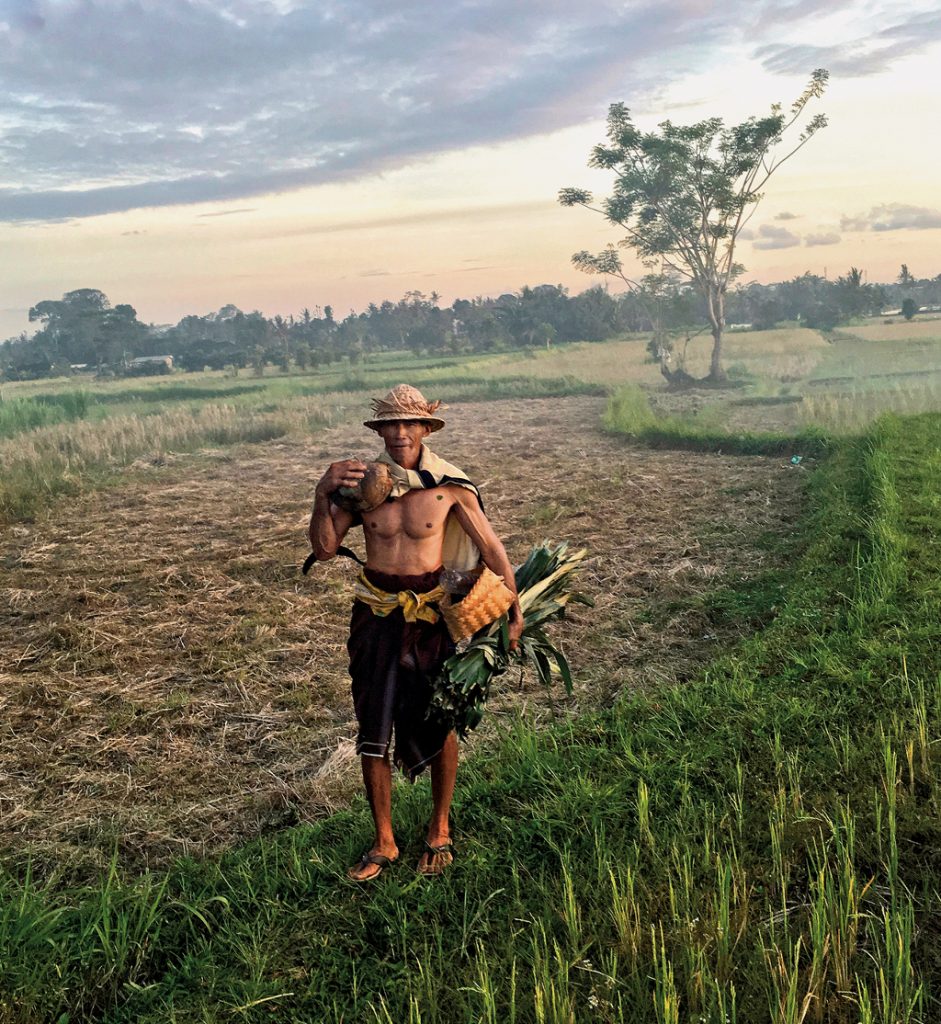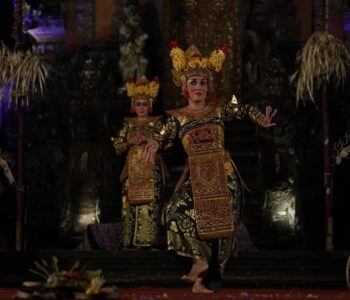The people who work Bali’s fields now are no longer young. Their children have all been sent off to school, to get an education, to follow what they see as the way to a better life!
But is it? Is there any satisfaction as strong as standing over your newly turned field, or of watching the young shoots grow into nutritious food to feed the family and community?

Traditionally, a farmer’s life was balanced with dance and with temple ceremonies, which followed the seasons and the wisdom of the village priests, with a predictable regularity, giving depth and meaning to a simple, straightforward life. Community gatherings were the glue that held the society’s fabric together. Life was uncomplicated but there was happiness and an inner peace.

Today the children all go to school and learn about consumerism along with their ABC’s. A handphone, a motor scooter, then clothes and restaurants – the needs keep growing. Entertainment also change. Instead of chasing fireflies in the fields or hunting eels, life centres around computer and video games and a lessening of earth wisdom.

It is becoming a simple life no longer, but is it better? These pictures are taken around Ubud of people going abut their daily activities, but look, they are all over fifty. To see any children in the sawah is a rarity indeed. These folk could be the last generations of Balinese working the land.
Read about Future Farmers Indonesia , an organisation saving the country’s agrarian society by training and educating younger generations.






